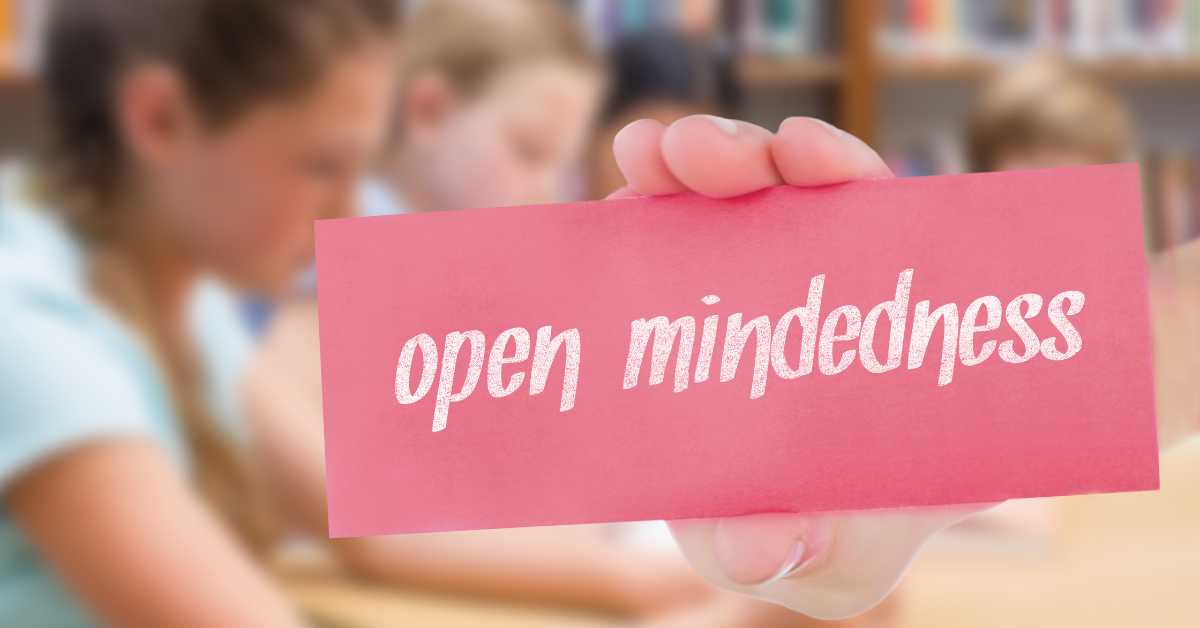In the quest for knowledge and understanding, individuals often encounter ideas or statements that prompt them to question their validity and coherence.
This article explores the various responses to Does it make sense?’ Skepticism and critical analysis play a crucial role in evaluating the logical consistency and evidential support of claims.
Trust and acceptance also come into play as individuals consider the credibility of the source presenting the information. Personal experience and perspective shape one’s interpretation and response, while cultural and societal influences further influence our understanding of what is considered sensible.
Emotional and intuitive responses can sway our judgment, albeit subjectively. However, logical reasoning and rationality serve as tools for objectively assessing whether an idea makes sense or not.
Ethical considerations ought to be taken into account when evaluating propositions that may have moral implications. Pragmatism and practicality also factor into our responses, as we weigh the potential benefits or consequences of accepting or rejecting an idea.
Lastly, open-mindedness and willingness to learn foster intellectual growth by encouraging exploration beyond preconceived notions.
By examining these different aspects, this article aims to shed light on how individuals respond when faced with questioning whether something makes sense to promote critical thinking within a community seeking intellectual progress.
Responses To Does It Make Sense: “Does it make sense?” A simple question is often asked to clarify ideas, decisions, or situations. Explore the diverse responses and insights that arise from this fundamental inquiry.
Skepticism and Critical Analysis

Skepticism and critical analysis play a crucial role in evaluating the coherence and validity of ideas, allowing for a deeper understanding of their underlying assumptions and potential flaws.
By adopting a skeptical attitude, individuals can question the reliability and accuracy of information presented to them. This skepticism encourages critical analysis, which involves carefully examining evidence, arguments, and reasoning to determine their soundness.
In today’s interconnected world where information is easily accessible, individuals need to cultivate a sense of skepticism. This allows them to discern between reliable sources and misinformation or biased viewpoints.
By critically analyzing the information they encounter, individuals can make more informed decisions and avoid being swayed by false or misleading claims.
Furthermore, skepticism promotes intellectual growth by challenging established beliefs and encouraging the exploration of alternative perspectives. It fosters an environment where ideas are examined objectively rather than accepted blindly.
Through critical analysis, weaknesses in arguments can be identified, leading to a refined understanding of complex issues.
Skepticism and critical analysis are invaluable tools in our quest for knowledge and understanding. They enable us to evaluate ideas rigorously while avoiding dogmatic thinking or blind acceptance.
Cultivating these skills not only enhances our intellectual development but also contributes to the broader discourse within society.
Trust and Acceptance
Accepting and trusting new ideas and concepts is vital in fostering growth and progress within a society. It allows for the exploration of alternative perspectives, leading to innovation and development.
Trust and acceptance encourage individuals to engage in critical analysis, challenging existing beliefs and assumptions. By embracing new ideas, individuals have the opportunity to expand their knowledge and understanding of the world around them.
In a society that desires belonging, trust and acceptance play a crucial role in creating an inclusive environment where diverse opinions are valued.
When individuals feel trusted and accepted, they are more likely to express their thoughts openly without fear of judgment or exclusion.
This fosters a sense of belonging among community members, as they feel heard and acknowledged.
Moreover, trust and acceptance promote collaboration among individuals with different backgrounds and expertise. When people trust each other’s abilities, they are more willing to work together towards common goals.
This collaboration enables the exchange of ideas from various disciplines, leading to innovative solutions that benefit society as a whole.
Trust and acceptance are essential components of societal growth. They create an environment that encourages critical analysis while fostering a sense of belonging among community members.
By embracing new ideas with open minds, societies can achieve progress by harnessing the power of collective knowledge and collaboration.
Personal Experience and Perspective

In considering personal experience and perspective, one cannot deny the profound impact they have on shaping an individual’s understanding of the world, evoking a sense of empathy and connection that transcends mere logical reasoning.
Personal experiences provide individuals with unique insights into various aspects of life, allowing them to develop a deeper understanding of different perspectives and cultures. These experiences often challenge preconceived notions and foster a greater appreciation for diversity.
Furthermore, personal perspectives play a crucial role in forming an individual’s beliefs and values. They serve as lenses through which people interpret the world around them, influencing their decision-making processes and behaviors.
This subjective lens can result in differing opinions on various matters, highlighting the importance of embracing diverse viewpoints for societal growth.
Moreover, personal experiences also contribute to one’s ability to empathize with others. By drawing upon their encounters and emotions, individuals can better understand the feelings and struggles faced by others.
This shared sense of humanity fosters connections between people from different backgrounds and promotes social cohesion.
Personal experience and perspective offer valuable insights that extend beyond logical reasoning alone. They enable individuals to develop empathy towards others and form a more comprehensive understanding of the world.
Embracing these diverse experiences is essential for fostering belonging within society as it allows individuals to connect on a deeper level while appreciating the richness that comes from varied perspectives.
Cultural and Societal Influences
Cultural and societal influences play a pivotal role in shaping an individual’s beliefs, values, and behaviors. These influences are pervasive and can be seen in various aspects of one’s life, including their attitudes towards certain concepts or ideas.
For instance, in some cultures, collectivism is highly valued, with individuals prioritizing the needs of the group over their desires. This emphasis on collective harmony may result in individuals conforming to societal norms and expectations to maintain social cohesion.
Moreover, cultural and societal influences also shape an individual’s perception of what is considered acceptable or appropriate behavior. In many societies, certain actions or expressions may be deemed taboo or disrespectful due to cultural customs or religious beliefs.
Consequently, individuals often internalize these norms and regulate their conduct accordingly.
Furthermore, cultural and societal influences impact an individual’s understanding of social roles and responsibilities. For example, gender roles are deeply ingrained in many cultures, dictating expected behaviors for males and females.
These expectations can influence career choices, household duties, and even interpersonal relationships.
Cultural and societal influences have a profound impact on an individual’s beliefs, values, and behaviors.
By shaping perceptions of acceptability and appropriateness as well as defining social roles and responsibilities within a community or society at large; these influences significantly contribute to the formation of an individual’s identity while fostering a sense of belonging among like-minded individuals who share similar cultural values.
Emotional and Intuitive Responses

Emotional and intuitive processing significantly influence an individual’s understanding of and reactions to various stimuli.
These cognitive processes play a crucial role in shaping our perceptions, judgments, and decision-making abilities.
When it comes to evaluating whether something ‘makes sense,’ emotions and intuitions can either enhance or hinder our ability to comprehend and respond appropriately.
Emotions are complex psychological states that arise in response to specific events or experiences. They can color our perception of information, leading us to interpret it through the lens of our feelings.
For example, if a person feels fearful or anxious about a particular idea, they may struggle to grasp its underlying logic, even if it is rational.
Intuition, on the other hand, involves quick and instinctive judgments that bypass conscious reasoning. It relies on patterns stored in our memory and previous experiences to provide rapid assessments of new situations.
While intuition can be useful in certain contexts where time is limited or uncertainty is high, it may not always align with objective reality.
These emotional and intuitive responses are heavily influenced by cultural and societal factors. Belongingness plays a significant role as people often seek validation from their social groups when forming opinions or making sense of information.
Emotional and intuitive processing greatly impact an individual’s comprehension and reactions to different stimuli. Understanding these influences is essential for fostering effective communication and building inclusive communities where diverse perspectives are valued.
Logical Reasoning and Rationality
Transition: Building on our exploration of emotional and intuitive responses to the question of ‘Does it make sense?’ we now delve into the realm of logical reasoning and rationality.
While emotional responses are often driven by personal experiences and intuition, logical reasoning requires a more objective and analytical approach.
In addressing whether something makes sense, individuals rely on their capacity for logic and rational thought. This cognitive process involves evaluating evidence, identifying patterns, drawing conclusions, and making decisions based on sound principles.
Logical reasoning allows us to navigate complex situations, solve problems systematically, and make informed judgments.
To engage in logical reasoning, one must set aside personal biases or preconceived notions that may cloud judgment. The emphasis lies on seeking objective truth through rigorous analysis rather than relying solely on subjective feelings or beliefs.
By employing logical thinking, individuals can critically evaluate arguments, weigh evidence from multiple perspectives, identify fallacies or inconsistencies in reasoning, and arrive at well-founded conclusions.
Moreover, cultivating skills in logical reasoning fosters intellectual growth and enhances one’s ability to contribute meaningfully to discussions within diverse communities.
It enables individuals to construct persuasive arguments that resonate with others who prioritize belongingness while maintaining objectivity.
Exploring the role of logical reasoning and rationality in responding to whether something ‘makes sense’ provides an essential framework for understanding how individuals strive for knowledge acquisition while promoting a sense of belonging within intellectual communities.
Ethical Considerations

Ethical considerations play a crucial role in determining the rationality and logical reasoning behind certain actions or decisions.
When evaluating the sense-making of an action or decision, it is essential to take into account its ethical implications.
Ethical considerations provide a framework for assessing whether an action or decision aligns with societal values, principles, and norms.
In the realm of logical reasoning and rationality, ethical considerations help determine if an action or decision is morally right or wrong. This involves evaluating the consequences of the action on different stakeholders and considering principles such as fairness, justice, and autonomy.
By incorporating ethical considerations into our analysis of sense-making, we can ensure that our actions are not only logical but also ethically justifiable.
Furthermore, ethical considerations promote accountability and transparency in decision-making processes. They encourage individuals to reflect on their motivations and intentions behind their choices, ensuring that they are acting in good faith and adhering to moral standards.
Ethical reasoning also helps identify potential conflicts between personal interests and collective well-being.
Ethical considerations are integral to determining the rationality and logical reasoning behind actions or decisions. They provide a moral compass that enables us to evaluate whether our choices align with societal values while promoting accountability and transparency in decision-making processes.
By considering ethics alongside logic, we can strive for a more balanced approach to sense-making that benefits both individuals and communities at large.
Pragmatism and Practicality
Pragmatism and practicality play a pivotal role in decision-making, as they prioritize the most efficient and effective course of action based on realistic goals and resources available.
When considering whether something ‘makes sense,’ individuals often turn to pragmatism and practicality to assess the feasibility and viability of a particular idea or proposal.
In terms of pragmatism, individuals evaluate the practical implications and consequences of a decision. This involves considering the potential benefits, costs, risks, and outcomes associated with different options.
Pragmatic decision-making focuses on what is achievable within given constraints and aims to maximize effectiveness while minimizing unnecessary complexities.
Practicality refers to the ability to implement a decision successfully. It considers factors such as available resources, time limitations, expertise required, and logistical considerations.
A pragmatic approach takes into account these practical aspects to ensure that the chosen course of action can be realistically executed.
By prioritizing pragmatism and practicality in decision-making processes, individuals can make well-informed choices that are grounded in reality. This approach helps avoid unrealistic or idealistic notions that may hinder progress or lead to unattainable goals.
Therefore, when assessing whether something ‘makes sense,’ it is crucial to consider both pragmatic implications and practical feasibility. By doing so, individuals can align their decisions with realistic objectives while optimizing their use of available resources for maximum efficiency.
Open-mindedness and Willingness to Learn

Open-mindedness and a willingness to learn are essential attributes for individuals seeking to broaden their understanding and knowledge base.
Being open-minded allows one to consider different perspectives, ideas, and experiences without prejudice or bias.
It fosters intellectual growth by enabling individuals to challenge their existing beliefs and assumptions, leading to a more comprehensive understanding of the world.
A willingness to learn goes hand in hand with open-mindedness. It involves actively seeking new information, acquiring new skills, and embracing continuous personal development.
This attribute allows individuals to expand their knowledge base beyond what they already know, fostering intellectual curiosity and adaptability.
Having an open mind and being willing to learn is particularly important in today’s rapidly changing world. With advancements in technology, globalization, and an increasingly interconnected society, individuals must stay updated on current trends and developments across various fields.
Open-mindedness enables individuals to embrace diversity in thought, culture, and values, promoting inclusivity and fostering meaningful connections within diverse communities.
Moreover, possessing these attributes contributes significantly towards personal growth as well as societal progress. By being open-minded and willing to learn from others’ experiences or expertise, individuals can contribute richly towards collaborative efforts aimed at problem-solving or innovation.
Open-mindedness and a willingness to learn are crucial attributes that enable individuals not only to broaden their understanding but also foster personal growth as well as contribute positively towards societal progress.
Embracing these qualities helps build stronger communities that value diversity of thought while nurturing an environment conducive to constant learning.
20 Effective Responses to ‘Does That Make Sense?’
- Absolutely! You’ve got it right.
- How did you come up with this concept?
- I’m a bit puzzled.
- Do you have a different perspective?
- Yes, it makes sense.
- I’m a bit lost here.
- I appreciate it.
- This is truly remarkable.
- What are your thoughts on this?
- I could use some more clarification.
- Let’s focus on the positive side.
- I don’t see any reason why it wouldn’t.
- I value your insights.
- That’s a solid strategy.
- Let’s delve into this further.
- It’s not relevant to you, is it?
- Still not getting it?
- What makes you think it’s unclear?
- Share your thoughts openly.
- Not from my perspective, evidently.
FAQs About Responses To Does It Make Sense:
Q:1 How can skepticism and critical analysis help in evaluating the sense or validity of a statement?
Skepticism and critical analysis play a crucial role in evaluating the sense or validity of a statement.
By adopting a skeptical mindset, individuals are encouraged to question assumptions and seek evidence to support or refute claims.
Critical analysis involves examining the logical coherence, consistency, and empirical basis of a statement.
These practices contribute to an objective evaluation of the statement’s merit and help prevent errors in reasoning or accepting unfounded assertions.
Q:2 What factors contribute to trust and acceptance of a particular idea or concept?
Factors that contribute to trust and acceptance of a particular idea or concept include:
- Credibility of the source
- Coherence with existing knowledge and beliefs
- Empirical evidence supporting the idea
- Consistency with personal experiences
- Endorsement by authoritative figures or institutions
- Social influence
These factors foster a sense of belonging by affirming individuals’ shared values and beliefs within their social group. The evaluation of these factors aids in determining the validity and plausibility of an idea or concept.
Q:3 Can personal experiences and perspectives influence one’s understanding of whether something makes sense or not?
Personal experiences and perspectives can indeed influence one’s understanding of whether something makes sense or not.
When individuals have personal experiences that align with a particular idea or concept, they are more likely to find it sensible and acceptable. On the other hand, if their experiences contradict or challenge the idea, they may perceive it as nonsensical.
Perspectives also play a role, as different cultural, social, and personal backgrounds shape how individuals interpret information and determine its sensibility.
Q:4 How do cultural and societal influences shape our perception of what makes sense?
Cultural and societal influences significantly shape our perception of what makes sense. These influences provide a framework through which we interpret information and make judgments about what is logical or rational.
Cultural norms, values, and belief systems shape our understanding of reality and guide our reasoning processes.
Societal structures and institutions also play a role in shaping our perceptions by influencing the information we are exposed to and how knowledge is constructed and shared within a given community.
Ultimately, these influences contribute to the formation of shared understandings of what makes sense within a particular culture or society.
Q:5 What role do emotional and intuitive responses play in determining the sense or reasonableness of a statement?
Emotional and intuitive responses play a significant role in determining the sense or reasonableness of a statement. These responses are influenced by personal experiences, beliefs, and values, which shape one’s perception of what is reasonable.
They can provide insights beyond logical reasoning and contribute to a holistic understanding of a statement’s meaning.
However, it is important to note that emotional and intuitive responses should be complemented with critical thinking and evidence-based analysis to ensure objectivity and accuracy in evaluating the sense of a statement.
Conclusion:
In conclusion, the responses to the question of whether something ‘makes sense’ are multifaceted and influenced by various factors.
Skepticism and critical analysis play a role in evaluating the validity of an idea or concept. Trust and acceptance can also shape one’s response, as can personal experience and perspective.
Cultural and societal influences, emotional and intuitive responses, logical reasoning and rationality, ethical considerations, pragmatism and practicality, as well as open-mindedness and willingness to learn all contribute to how individuals make sense of information or ideas presented to them.
We hope you will be well aware of Responses To Does It Make Sense, after reading this comprehensive article. If you have any questions, feel free to comment below!
